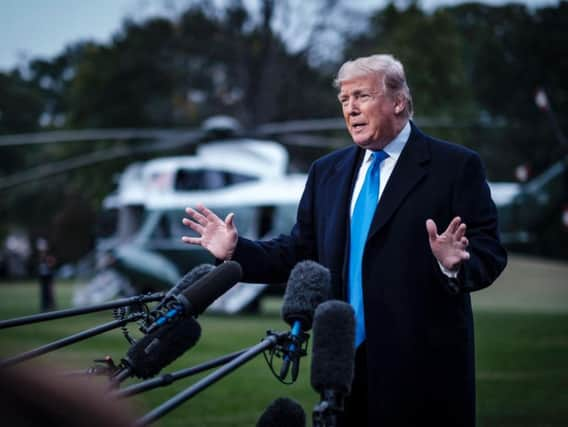Iran: Donald Trump's strategy to 'speak loudly but carry a small stick' may end in war – Dr Steven Hurst


How seriously should we take this threat? Trump has form in this area, having previously threatened Iran and North Korea with "obliteration" and "total destruction" respectively without taking any subsequent action.
When Iran shot down an unmanned US drone earlier this year, Trump initially authorised retaliatory strikes only subsequently to back down.
Advertisement
Hide AdAdvertisement
Hide AdIn practice, his use of military force has been restricted to a couple of small retaliatory missile strikes in Syria and an increased use of drone strikes elsewhere, indicative of his reluctance to risk US casualties in prolonged military conflict.
The evidence thus suggests that Trump is the antithesis of former president Theodore Roosevelt's diplomatic ideal – he speaks loudly but carries a small stick.
Trump doesn't want a war with Iran with an election a year away. He wants to look tough and decisive, but a strike against Iranian targets will not be a one-off.
Iranian retaliation in some form or another, whether against US shipping in the Gulf or against US allies in the region, is inevitable and from there things could get very messy very quickly.
Nor, for all of its own, equally inflammatory rhetoric, does the Iranian regime want a military conflict with the United States. While Iran would not be 'obliterated' in such a conflict, it would suffer a great deal of damage which would undermine a weak economy and risk provoking a major domestic backlash against an already unpopular regime.
Of course, the fact that neither side wants war does not guarantee that there will not be one, particularly when the two countries involved are locked into a pathological relationship of mutual hostility which plays such a central role in their domestic politics.
Both regimes have demonised the other for decades and the language of threat and confrontation is used by both sides as a tool to secure domestic political legitimacy.
Advertisement
Hide AdAdvertisement
Hide AdTrump's threats against Iran mobilise his 'base' while in Tehran standing up to the US and issuing dire warnings of what Iran will do should the US dare to attack it is almost a competitive sport. In Iran's complex factional politics, being perceived as soft on the US is only ever disadvantageous.
It remains most likely that both parties will seek to avoid direct conflict – Trump's "locked and loaded" comment contains plenty of qualifications that will allow him to avoid military action against Iran.
Nevertheless, as long as both countries continue to demonise the other, and as long as the rhetoric of threat and counter-threat remains inherent to the political discourse on both sides, the danger of one or the other government painting itself into a rhetorical corner or provoking the other into aggression will always remain.
Dr Steven Hurst is a reader in politics at Manchester Metropolitan University